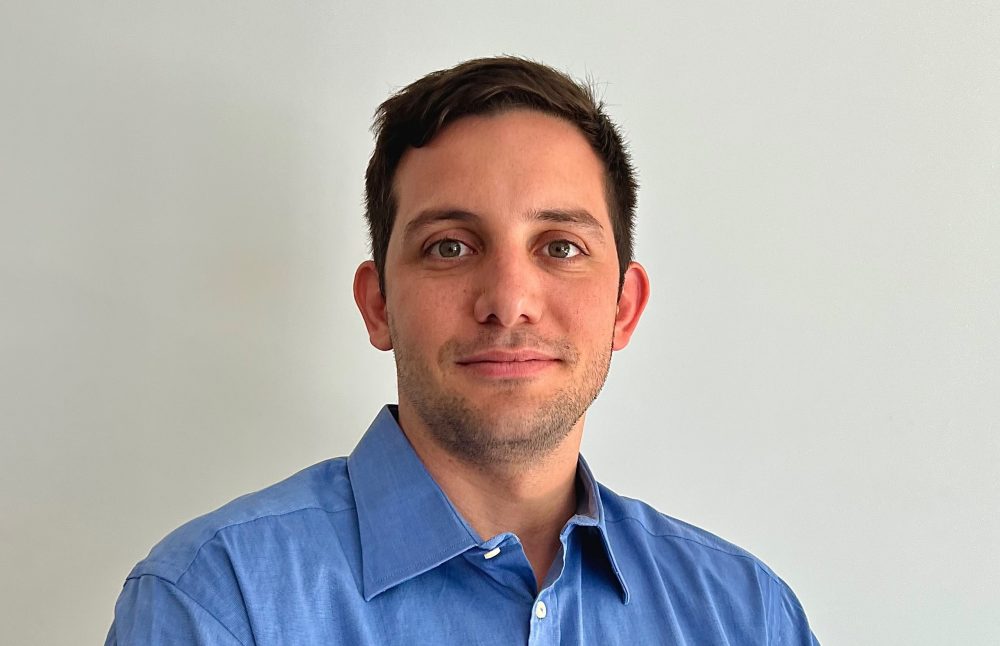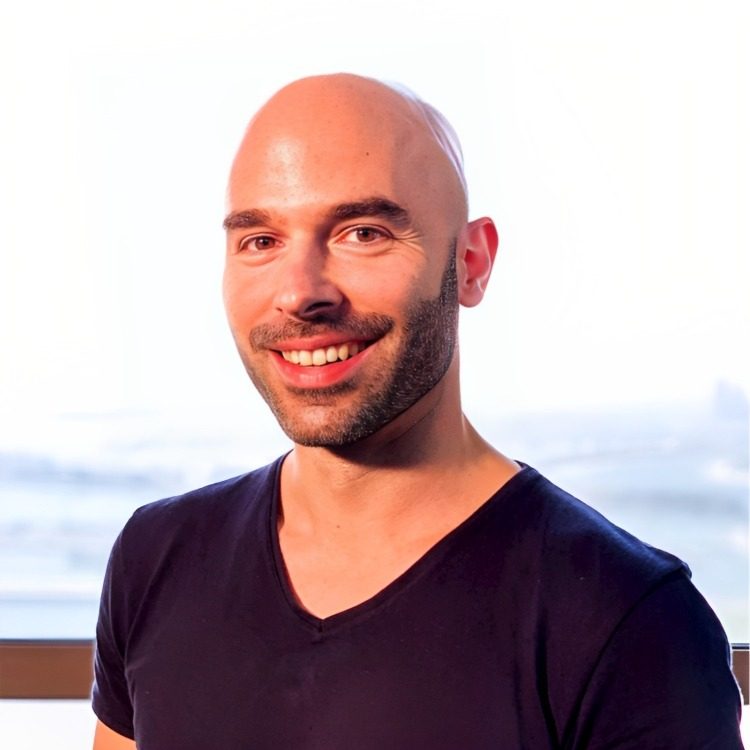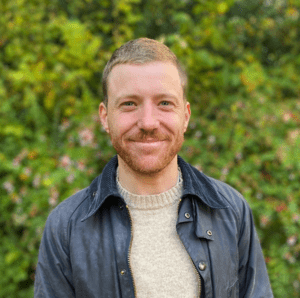I’m a computer engineer transformed into a ⚙️ passionate No Coder ⚙️. Reach out if you want to get introduced or learn more about the No Code world!
Lessons on starting a business: Iraklis Alexopoulos
Here is something that many founders do spontaneously.
How do you choose what business to build?
- random, coming into the attention of the team
- niche problems, in industries the founders understand
- excitement, following shiny objects
As Iraklis mentioned, the type of business you start or operate will impact the lifestyle you will be able to adopt.
In this episode, you will learn more about:
- the sense of urgency and accomplishment for early stage bootstrapped companies
- how to choose what business to build
- ideas in isolation vs real-world observations
- how talking to customers can change what you build
- just starting your efforts, and getting your hands dirty
Tools Mentioned:
- Indie Hackers, a great community to connect with fellows
- The Mom Test, a book that every aspiring founder should read once or twice
And all these in less than 15 min.
Transcript
Iraklis Alexopoulos: Hey, everyone, my name is Iraklis. I’m a tech founder, and over the years have built a handful of businesses. And I’ve made many mistakes along the way. So hopefully today, during our discussion, I’ll help you avoid some of these mistakes. And maybe you can learn also some of the things that I’ve that I’ve tried it really worked well. So excited to be here.
Spyros Tsoukalas: Iraklis Welcome to the Growth Mentor podcast. I’m excited to discuss with someone who has been there, done that. So let’s get to the days around bootstrapping. Could you tell us something we don’t know about being a bootstrap founder and the life around it?
Iraklis Alexopoulos: Yeah, definitely. Well, I think when everyone thinks like about Bootstrap, founders a, obviously there is a phase in your bootstrap founder, journey where you’re insanely busy, you have customers, you build one thing after the other. But in the very beginning, before you actually build something that you put out in the world, and you have to, and you start having traction, and real customers, it’s very easy to fall in a trap of procrastination, or like, you know, chasing endless rabbit holes, and not having any urgency for what you build. So one thing that I’ve noticed you also speaking with other bootstrap founders, is that in the early stages, it’s very important to create that sense of urgency. And you create that sense of urgency, with basically breaking down what you’re trying to build into smaller components, and then trying to achieve one after the other. That gives you a sense of accomplishment, that gives you a sense of track where you are and where you’re going. And then once you go through this initial stage, and finally, you have something out in the world, which hopefully you have validated in in some ways before that, then urgency will be real idea, if you have, you know, people who are interested in what you build in and you start having traction. So I think, you know, one thing that people don’t know as much is that in the very early stages, you have to be very self disciplined, and be very specific and intentional about what you do.
Spyros Tsoukalas: So, you mentioned, you have built a couple of companies along your career, how have you been choosing what businesses to build?
Iraklis Alexopoulos: It’s not always the same. Many times, it’s kind of random, it depends on sometimes, for example, you know, some of the visit I have co founded, it was a matter of some that came into my attention and my co founders attention. So, you know, it could be an idea that is not some that you initiated, but some of you brought together. In other cases, you know, I’ve been looking for more niche problems, problems that I understand very well, and that I think, deserve a better solution. In other cases, just excitement, you know, in the very early ages, very early stages of me building stuff. You know, I’ve been guilty of also like following shiny objects, and trying to fit and business within technology, and to say that I was very excited about, which is not the way to go about it. And so there are many ways, it really depends on like, your internal or external triggers. But as I mature, and as I grow older, what I’m looking for, especially for the kind of business that I enjoy building, is real niche problems, opportunities that I observe. And it’s not just ideas that, you know, I sit back and just in isolation, I just come up with ideas. So I like things that are really reflecting opportunities in the real world.
Spyros Tsoukalas: That do their business models that you can apply, as well as your lifestyle. Take be part are they part of those decisions?
Iraklis Alexopoulos: Definitely. I think also, that is a thing that you know, not many people talk about, you know, it’s easy to just want to many people just are excited with the idea of building a startup. And what they have in their mind is, you know, you need to perhaps raise funding, you know, build in a certain way, build a team. First of all, it doesn’t have to be the same for everyone, and the kind of startups that you build any kind of company that you build, if anything you should before, committing to build in something, you should think about the kind of life that you want to live, because the kind of life that you want to live is going to be impacted severely by the kind of businesses you run and that you operate. So one discussion that I don’t hear much and you know, but I’m discussing this a lot with people in my in my network and my circle, is that it’s very important to be honest to yourself about what you enjoy them, what makes you feel fulfilled, and try and create those constraints within which you can build a business that satisfies that. So I’ll give you a very practical example. Let’s say for example, you don’t particularly enjoy raising funding, or you’re not good at it. That means that if you want to start building a business, the kind of business that you can build, have to fall within that constraint. So you know, if you want to build the next Uber probably is not the right business model if you don’t want to raise funding, so you have to go a bit more niche a bit more specific. So I think it’s very important that people take that into account when they build the business.
Spyros Tsoukalas: So I that’s something that I’m, I have suffered from like shiny object and then not understanding it very early stage or like when you’re kind of immature, like the sacrifices the fundraising the process, or are the whole lifestyle adjustment that you have to go through to build something. And that’s extremely interesting. It’s the first question I hear. I listen to, like, addressing that so intensively.
Iraklis Alexopoulos: I mean, you know, if you if you’re going to spend a lot of your time doing something, you might as well do something that makes you happy, you have to optimise for happiness, right? And when I say optimise for happiness, I’m not talking about like, chillin and you know, working one hour, a month, and like, you know, perhaps that’s what is happiness for you or for whoever. But happiness is basically having power over how you spend your time. And, and what are the things that you’re doing? So, yeah, that’s what I’m trying to optimise. And I think that’s, that’s a good approach.
Spyros Tsoukalas: Thanks. Thanks. Thanks for sharing this amazing, Iraklis. So having built a few businesses along your career, I guess you have been through the stage of validation ideation. Like you must have been through that. So could you elaborate a lot around how you do like you validate your ideas or products?
Iraklis Alexopoulos: Sure, I’ve also skipped that stage, but you don’t want to know what happened, you probably know what happened. So I think, as I said, when you when you come up with that, when you start working on something, when you start building something, it’s important that it’s not just an idea in isolation. It’s not just something that you think sounds interesting, or something that you think people need, it’s important that it comes out of real world observation. You know, I like to keep myself I like to keep my antenna always up and expose myself to different stimuli when it comes to businesses, industries, and you know, different types of operations. And what I’m trying to do is I’m trying to identify recurring themes, recurring patterns, and opportunities to make something better. Now, I assume that you have identified that let’s assume that, you know, you find a problem that let’s say plumbers have right, then that’s, that’s the first semester first place, once you know who your audience is, and what they need or what they suffer with, then obviously, the next thing is to go and talk to those people, right? There is no validation without talking, talking to your potential customers. But when I say talking to your customers, I’m not talking about you going there and pitching your, your startup idea and being all excited, and asking all the valid questions like, you know, if this existed, would you pay for it? Where like, you know, everyone’s gonna tell you Yeah, yeah, it sounds cool. Of course, I would pay for it. It’s important that you understand more about their life, it’s more that you understand more about how they do things, rather than depend and rely on your own assumptions of what a plumber needs, right? And you do that by asking questions around, how they, how they go about their life everyday, how they perform their operations, what are the things that they care about? What are the things that they worry. And then you start drawing conclusions and seeing the recurring themes and their recurring patterns. And that falls very much within the the approach that I don’t know if you know, The Mom Test, which is highly recommended. I always recommend it to, to my mentees, and this is very much in line with this approach. So for you to validate a concept, you need to know who that concept is for. Have a pretty good understanding of you know, what is the problem you’re trying to solve? And then have really open discussions and bias discussion with those people and try and get the the insights that you need.
Spyros Tsoukalas: I have done that mistake, as well. So we all have, I hope I hope that people out there we learn from you and maybe not do it. Right?
Iraklis Alexopoulos: And I forgot to mention that of course, like in order for you to talk to those people you need to find those people which is also a question that I get a lot so you have to identify what are the communities what are the places that your audience hangs out either digitally or even in the physical world. For example, let’s say let’s say you build the tool for media planners, right? Maybe in your community or the city that you live you happen to know that every Friday you know all media planners from companies around like the the area they hang out at a specific bar and they have like after work beers, whatever. That is also an opportunity you can go there and basically embed yourself within within that circle or within that community and try and learn more about how they do things. Digitally you can find those the your audience in groups like you know, you can go to Facebook groups, you can go on subreddits you can go on forums. So you have to find those places where the your potential customers congregate, socialise, and try and embed. listen a lot. Don’t just talk Don’t try, don’t try to pitch and then try and have one on one discussions.
Spyros Tsoukalas: I have this impression that you’re a bigger fan of like B2B SaaS, let’s say but how does this customer discovery process change when you’re dealing directly to customers, or when you have, like B2B or B2B to be products that people are like, they work at companies, they’re not like everyday users that you can meet in the supermarket.
Iraklis Alexopoulos: Yeah, I think the good thing about B2B is that, first of all, like, you know, assuming you you build in a paid product or paid business, and it’s not just something that’s free, I mean, it could also be free, but then obviously, the way to grow it in a way to monetize it, it’s a different discussion. But let’s assume you’re building something that’s a paid service, a paid thing, right. And businesses are more used to and more familiar with pain, for alleviating pains, or for increasing and enhancing their efficiency. So I think in that sense, you kind of don’t have to deal that much with that buyer, which is, like, for example, in b2c products, most of us are used to use different tools. And we use those tools quite heavily for free. You know, many of us use, let’s say, Slack for free, Asana for free, you know, WhatsApp is free. So it’s not that common in our daily operations, at least with, you know, online products and online services that we used to pay for them. Whereas business owners, they understand the concept of, you know, I can pay for some that saves me X amount of time, or saves me X amount of money. So I think that positions the discussion a bit a bit more, it makes it a bit easier. And then the I think businesses have more well defined problems, then, you know, basically, end users in B2C applications, you know, they might have a specific problem with, let’s say, supply chain or operations, or accounting. And that is that makes it easier for you to start a discussion, there’s less need to educate them on, you know, what the solution eventually might be. And I think that saves you a lot of time and a lot of hops in the discussion.
Spyros Tsoukalas: Also been there, done that. I relate so much to your career, why did they meet you earlier? So going towards the end of this episode? Iraklis, are there any tools or resources that you would recommend to people listening to us?
Iraklis Alexopoulos: Yeah, definitely. One one, I wouldn’t call it a tool, it’s more of a community that I have felt that has helped me a lot apart from Growth Mentor, obviously, which I’m a huge fan of is Indie Hackers, which is a great community. It’s a forum, basically. But I really love the podcast as well. And I really love it because you hear the stories of other founders, or the bootstrap founders, if that’s the space you want to operate in. And you understand that, you know, it’s not something unreachable, they’re not superhuman, I mean, some of them are brilliant people, obviously. But at the end of the day, what it takes to build a successful business is to really be honest to yourself, and the problem you’re trying to solve, being observant and learn a bit from other people’s mistakes and successes. So you know, that community for me, it has helped me a lot. Another tool that I recommend, or an actual another resource, I think I already mentioned, it is The Mom Test, which I think is something that you know, every founder or any aspiring founders should do that at least once or twice. Because we all fall in the same in the same traps when trying to validate and build a product. But another thing that I want to say is like, you know, there’s infinite material out there, you can study, you can listen to podcasts, you can read, it’s never ending. But at the end of the day, you also have to get started. So as much as I believe in the value of tools and communities, I think it’s very important that you don’t just, you know, get paralysis by analysis, and you start doing things and realise that there is not one magical way of doing things. Every person has their own way of doing things. For example, you see, like, you know, Peter levels and say, for example, the way he builds things, is completely unconventional. Like if you take into account the, the way that people build products in terms of tech and product and marketing and all that, but it works for him, it works very, very well. And there’s also many other ways of doing things. So it’s very important to just get started, start experimenting, start getting your, your hands dirty with you know, whatever it is that you want to build. And at the same time, consume content and be part of communities like mine have communities. It’s especially the communities part, not finding yourself, you know, alone and thinking that you’re the only one going through a problem is a massive is a massive thing. The more you feel that other people as well have the same aspirations and the same concerns like you, the more that pushes you forward, to continue with what you’re doing.
Spyros Tsoukalas: Iraklis, thank you very much for sharing all these insights from your career with us today. And I hope that people listening to us will learn as much as many things as I did.
Iraklis Alexopoulos: Thank you so much. It is an absolute pleasure.
In this episode


Over the past 10+ as a Founder and CTO, I have built and grown a handful of businesses. I know how overwhelming it can all get, but talking to someone who has been there before always helped me. And now, I am here to help you
Join the community
Enjoy the peace of mind that advice is always only one Zoom call away.


